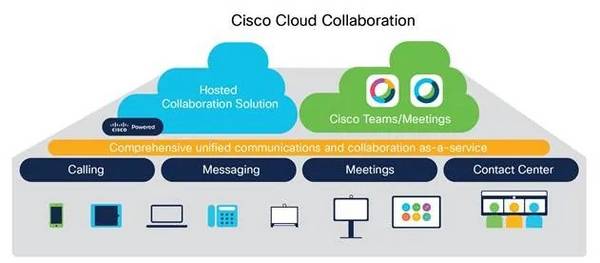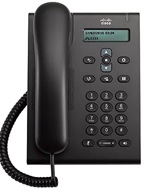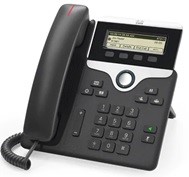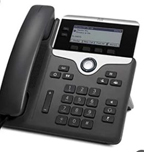Unified Communications (UC)

The University currently uses Unified Communications to facilitate all calling services within the institution.
Unified Communications is the integration of enterprise communication services such as Voice over Internet Protocol, Voicemail, Instant Messaging, Presence, Mobility and Directory Search as its primary functions. This is then further extended with additional functionality for video conferencing services.
Unified Communications is about communicating from anywhere, any time and from any device.
The University uses the Cisco Unified Solution within its operations to provide services for our users. The Cisco Collaboration Platform has repalced the traditional PBX hardware with the following key critical technology improvements.
- Enterprise Telephony: An on premise virtualised cloud-hosted PBX based on Cisco Unified Communications Manager for full- featured, enterprise-grade IP telephony for any size organization.
- Unified Communications: Enjoy voice and video calling, mobility, instant messaging, and presence on any desktop or mobile device with Cisco Jabber.
- Conferencing: Add WebEx Meetings and Webex Teams to your HCS solution. Engage your co-workers, customers, and partners. Experience better meetings with high-definition video and screen sharing.
- Contact Center: Run your customer engagement center completely in the cloud and create differentiated omnichannel customer experiences by adding Cisco HCS for Contact Center.
- Endpoints for every occasion: Select from a wide range of Cisco IP phones to suit any requirement, and choose award-winning desktop and room systems that can transform your workplace.
You can find more information on the Cisco Unified Communications Website.
The Unified Communications platform now includes the following features which has been deployed as an initial service to all users. Please note that there are other services that will be deployed once rollout has concluded.
- Handsets & Soft Clients – Users can either get a physical handset or get their services via a Jabber Client running off their Windows, Android and Apple iOS devices.
- Roaming Charges – The new platform will eliminate the need for roaming charges as all calls will require mobile data services.
- Collaboration – Greater collaboration capabilities between campuses providing extension to extension based calling for all users.
- Equipment Reduction – Significant reduction in the hardware footprint, thus reducing real state requirement’s such as power, cooling, battery backup requirements.
- Voicemail Improvements – Voicemail delivery notifications to emails and also to Jabber Clients.




